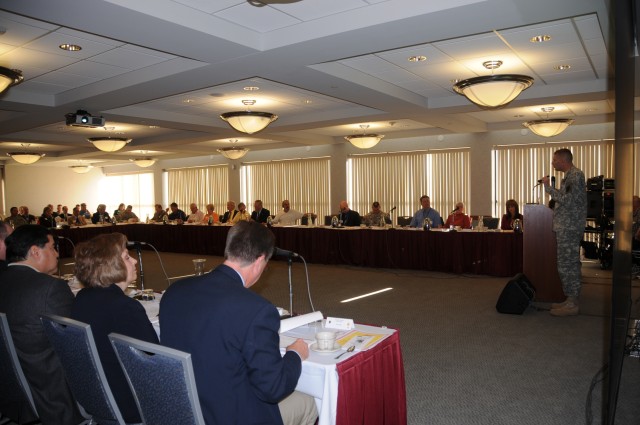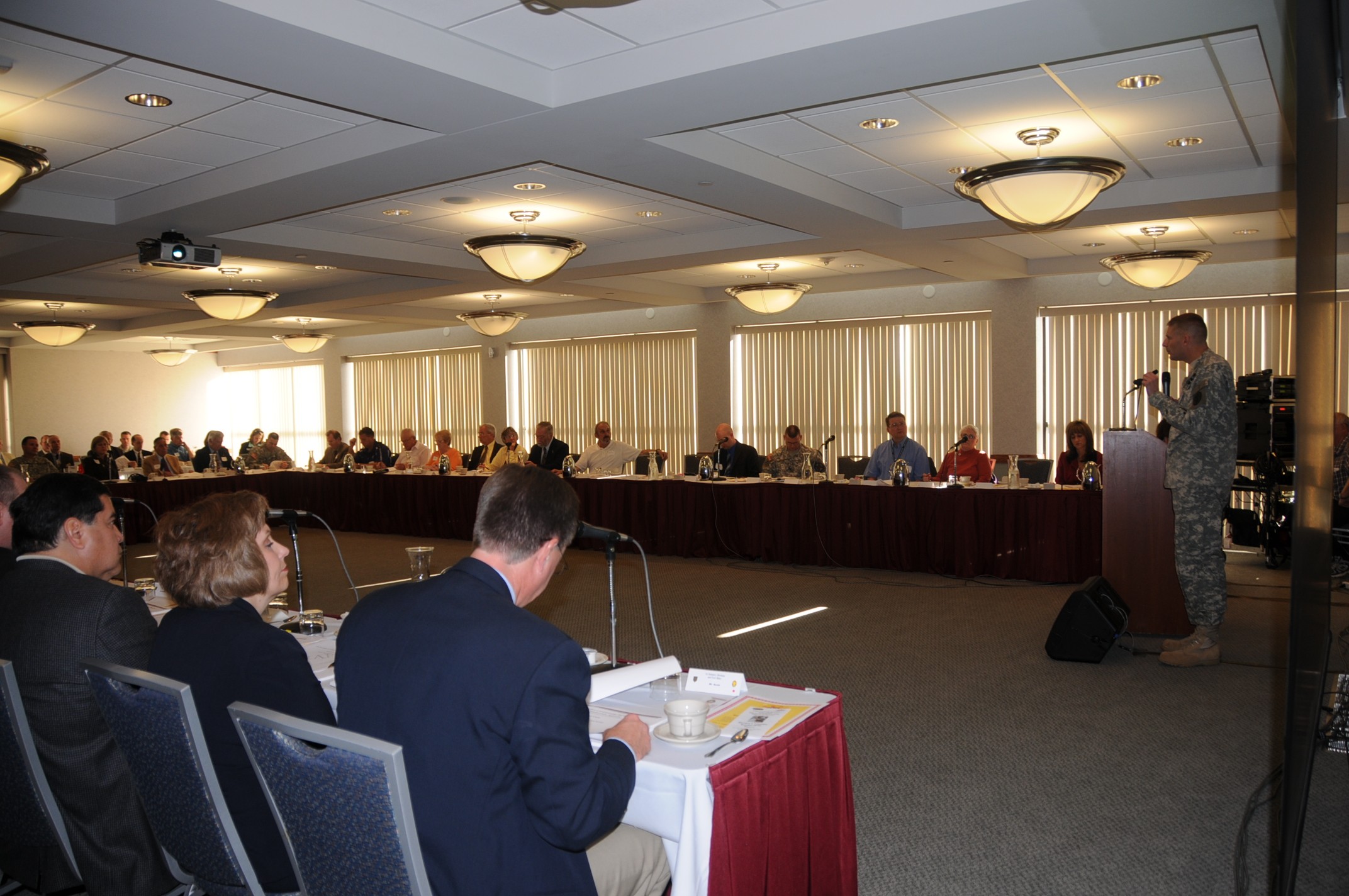Irwin Army Community Hospital has made significant progress in many areas to improve medical care for Soldiers and their Families, but there are still several challenges ahead, IACH Commander Col. Jeff Johnson told community leaders during a recent Community Partnership Conference on health care. Johnson was the speaker at the conference Oct. 31 at Riley's Conference Center.
During the last year, he said, IACH has decreased patient wait time from 211 minutes to 69 minutes; broken ground on two new facilities, a VA One-Stop Center, which will streamline the transition process for separating and retiring Soldiers, and a new 55,000 square-foot Soldier Family Care Clinic on Custer Hill; decreased patient no-show rates from 11 to 7 percent; and has made progress in establishing a partnership with Kansas State University in the areas of audiology, speech therapy, marriage and Family counseling and traumatic brain injury care and research.
Some of the challenges the hospital still faces are the need to increase the number of primary care and behavioral health care providers; increase the number of network providers in the Central Flint Hills Region; and increase the number of military health care providers, although 15 military health care providers have been added to the IACH staff since last spring, Johnson said. NEW STATE-OF-THE-ART MEDICAL FACILITIES A highpoint of discussion was the new IACH medical campus, which is expected to be completed in 2013. At an estimated $404 million, the 550,000 square-foot facility will offer inpatient mental health care and will increase the capacity of services already offered at the hospital's current location.
The new hospital will be located at the Sacco Softball Complex site. The softball complex will be relocated to a different site on post. Hospital officials broke ground on a new $23.1 million Soldier Family Care Clinic Oct. 15 on Custer Hill. Officials hope to have the clinic completed by Summer 2010 and expect to have 15,000 patients enrolled at the facility.
The clinic will offer services like primary care, optometry, radiology, physical and occupational therapy and patient education, as well as a pharmacy and a lab. Plans for an Automated Neuropsychological Assessment Metrics Testing Site also are underway. Construction on the $750,000 project will begin this month, with a completion date expected by November 2009.
The facility will be designed as a testing site for neuro-cognitive problems on all Soldiers before and after deployments and will be located near the Soldier Readiness Center on Custer Hill. The predeployment test will determine a baseline for each Soldier, while the post deployment test will act as a comparison, Johnson said. Officials also will soon break ground on a $54 million Warrior Transition Battalion Complex. Construction on the project will begin in January 2009. The facility will include 138 barracks rooms and will be American Disabilities Act compliant. Along with the complex, a new Soldier and Family Assistance Center, the first of its kind Army-wide, will be built on Fort Riley. The 14,500 square-foot center will offer child care, education and community outreach services, as well as information on transition, finance, legal assistance, military benefits and chaplain services.
The center will house a lounge and food court for Families and friends to intermingle. The renovation of a current building on post will make way for a new traumatic brain injury clinic. Construction on the 13,368 square-foot clinic will begin this month and is expected to be completed by November 2009, at an estimated cost of $1.2 million. Services offered will include primary care, neurology, psychiatry, occupational, physical and speech therapy, as well as behavioral health and case management. Kansas State University has shown a great interest in partnering with the hospital in regard to the clinic, Johnson said.
Challenges still faced IACH currently has 1,100 employees and only about half of those employees are in the Army. The remaining staff members are from the civilian workforce and many live off post. When the new hospital is completed in 2013, an additional 300 hospital staff members will need to be hired to accommodate the work load. Other challenges the hospital still faces, Johnson said, include access to care, which encompasses backfilling positions of deployed military providers; a shortage of primary care providers at IACH; emergency room usage with a high primary care demand and a low supply; shortage of behavioral health services and providers; and a shortage of specialty care providers.
The conference was the eighth in a series of Community Partnership Conferences designed to increase the two-way flow of communication between Fort Riley and communities in the Central Flint Hills Region.
Following Johnson's presentation, the meeting was opened up for discussion, which gave community leaders the opportunity to provide input and suggestions about what they heard.


Social Sharing